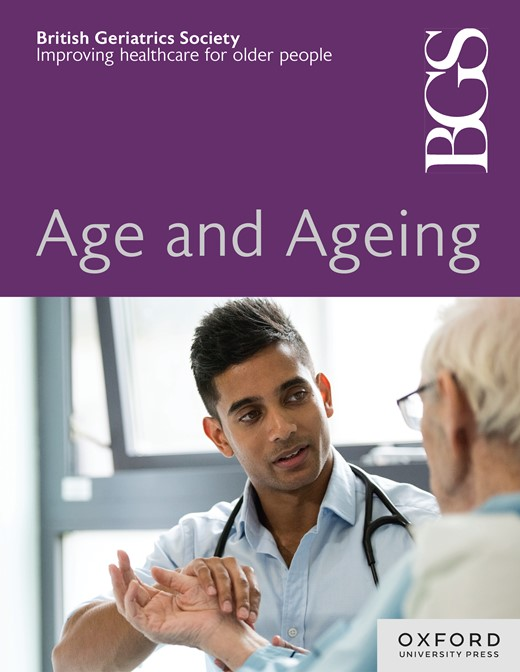阿尔茨海默病患者伴侣重度抑郁的风险:一项国家队列研究
IF 7.1
2区 医学
Q1 GERIATRICS & GERONTOLOGY
引用次数: 0
摘要
阿尔茨海默病(AD)不仅对患者而且对其伴侣都可能造成严重的社会心理困扰。然而,阿尔茨海默病患者伴侣重度抑郁的长期风险在很大程度上是未知的。方法在1998-2017年期间,对瑞典所有145289名全因痴呆患者的伴侣进行了一项全国性队列研究,其中包括57113名AD患者的伴侣,以及1 300 561名基于人群的对照组。Cox回归用于计算2018年全国门诊和住院患者诊断中确定的重度抑郁症后续风险的风险比(hr),并对社会人口因素和既往精神障碍进行调整。结果阿尔茨海默病患者伴侣的10年重度抑郁症累积发病率为5.4%,全因痴呆患者伴侣的10年重度抑郁症累积发病率为5.6%,对照组为3.9%。与对照组相比,阿尔茨海默病患者(HR, 1.53; 95% CI, 1.35-1.72)或全因痴呆患者(1.45;1.34-1.57)的伴侣患重度抑郁症的调整相对比率增加了约1.5倍。这些风险在女性(AD: HR, 1.41; 95% CI, 1.22-1.64;全因痴呆:1.36;1.24-1.50)和男性(AD: 1.81; 1.46-2.25;全因痴呆:1.73;1.48-2.01)中均升高。≥3年后,女性(1.3- 1.5倍)和男性(1.5倍)的风险仍然显著升高。一般来说,年龄≥85岁的伴侣风险最高。在这个大型的国家队列中,被诊断为阿尔茨海默病或全因痴呆的人的伴侣患重度抑郁症的风险约为1.5倍,几年后这一风险仍在升高。痴呆症患者的伴侣需要社会心理支持和长期随访,以便及时发现和治疗抑郁症。本文章由计算机程序翻译,如有差异,请以英文原文为准。
Risk of major depression in partners of people with Alzheimer’s disease: a national cohort study
Background Alzheimer’s disease (AD) may cause significant psychosocial distress not only in the patient but also their partner. However, long-term risks of major depression in partners of AD patients are largely unknown. Methods A national cohort study was conducted of all 145 289 partners of people diagnosed with all-cause dementia, including 57 113 partners of people diagnosed with AD, in Sweden during 1998–2017, and 1 300 561 population-based controls. Cox regression was used to compute hazard ratios (HRs) for subsequent risk of major depression identified from nationwide outpatient and inpatient diagnoses through 2018, adjusting for sociodemographic factors and prior mental disorders. Results The 10-year cumulative incidence of major depression was 5.4% in partners of people with AD, 5.6% in partners of people with all-cause dementia, and 3.9% in controls. The adjusted relative rate of major depression was increased ~1.5-fold in partners of people with AD (HR, 1.53; 95% CI, 1.35–1.72) or all-cause dementia (1.45; 1.34–1.57), compared with controls. These risks were elevated among both women (AD: HR, 1.41; 95% CI, 1.22–1.64; all-cause dementia: 1.36; 1.24–1.50) and men (AD: 1.81; 1.46–2.25; all-cause dementia: 1.73; 1.48–2.01). Risks remained significantly elevated ≥3 years later in both women (1.3- to 1.5-fold) and men (1.5-fold). Risks were generally highest in partners aged ≥85 years. Conclusions In this large national cohort, partners of people diagnosed with AD or all-cause dementia had ~1.5-fold risks of major depression, which remained elevated several years later. Partners of people with dementia need psychosocial support and long-term follow-up for timely detection and treatment of depression.
求助全文
通过发布文献求助,成功后即可免费获取论文全文。
去求助
来源期刊

Age and ageing
医学-老年医学
CiteScore
9.20
自引率
6.00%
发文量
796
审稿时长
4-8 weeks
期刊介绍:
Age and Ageing is an international journal publishing refereed original articles and commissioned reviews on geriatric medicine and gerontology. Its range includes research on ageing and clinical, epidemiological, and psychological aspects of later life.
 求助内容:
求助内容: 应助结果提醒方式:
应助结果提醒方式:


